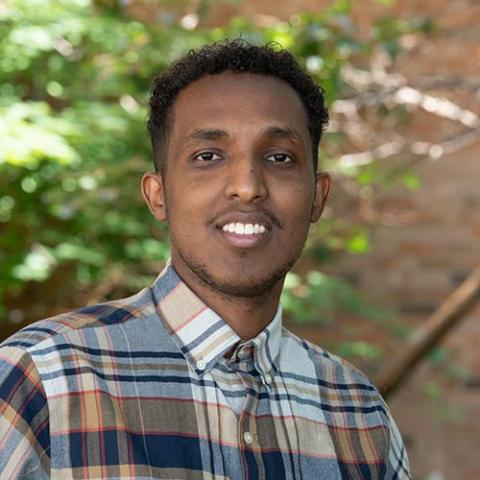McNair Scholar 2022 - Weli Ahmed
Weli Ahmed is a senior studying Cellular and Organismal Physiology at the University of Minnesota, Twin-Cities. My research endeavors are driven by a desire to understand the human mind. Currently, Weli wants to find out as much as possible about neuroscience, a fascinating field with many unanswered questions.
Quote from Weli Ahmed

"My dream is to see myself in the profession of research and development. I dream of being a part of the world that I live in. To me, this means to be able to use my knowledge and skills of science to make changes in our society."
Research project
Investigating Optimal Echo-times for fMRI
Abstract: Functional Magnetic Resonance Imaging (fMRI) measures brain activity by detecting changes associated with blood flow. After applying a radiofrequency pulse, echo time (TE) is the actual time when the signal of the T2 decay curve is measured. The optimal TE for a particular tissue is represented by T2*. As such, fMRI data of infants' brain activity can be challenging to interpret because of their underdeveloped neuronal structure and their small size. The objective of this study is to understand which are the optimal echo times for infants. Study subjects include two newborn infants, two toddlers ranging from 26-29 months, and two adults. Anatomical images of the brain are segmented using deep learning algorithms and overlaid with T2* maps for different brain areas to be analyzed. The T2* values of different brain areas are calculated, and their distributions are compared across the three groups. The study has shown that T2* measurement is dependent on brain area suggesting relaxation times are different between anatomical areas of the brain. Newborns had a higher T2* measurement than toddlers and adults when using a 3T MRI scanner. These results are important for fMRI and imaging research in infants to guide neuroimaging data acquisition.
Faculty mentor
Julia Moser is a postdoc fellow at the Masonic Institute for the Developing Brain of the University of Minnesota. She received her PhD in Neural and Behavioral Sciences at the University of Tübingen in Germany. Julia’s current research focuses on infant brain development, cognitive neuroscience, developmental psychology and infant neuroimaging. During her time at the University of Konstanz, Julia earned a Bachelor of Science in Psychology and a Master of Science in Neural and Behavioral Sciences from the University of Tübingen’s International Max Planck Research School.